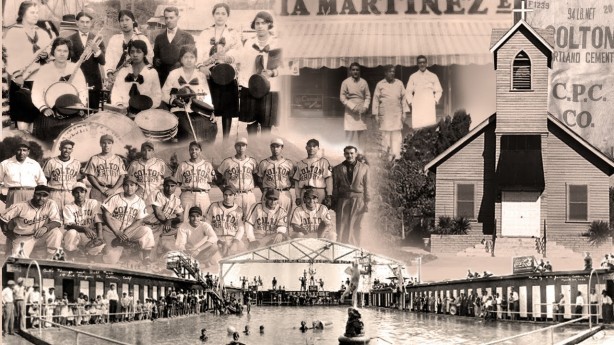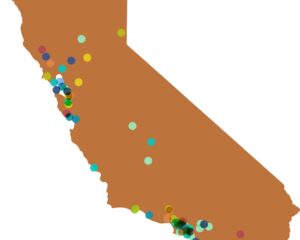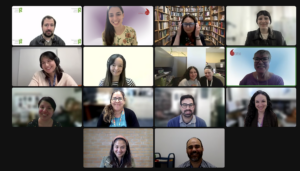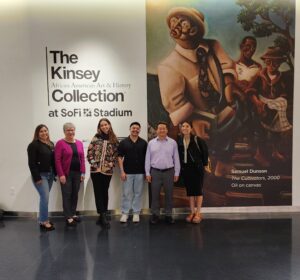By Dr. Tom Rivera, Project Director
In exploring the written history of the Chicano “neighborhood” where I grew up in Colton, California, I found almost nothing that described the many elements that made us, not just a segregated area of the City of Colton, but a self-sustaining, vibrant community. In fact, I found few references to its existence as the “Mexican” side of town, or its existence as a city within a city. In a 1.3 sq. mile area, we had our own churches, schools, grocery stores, a bakery, barber shops, gas stations, a furniture store, a shoe store, liquor stores, night clubs, a dance hall, and even a bullring. Yet, a 1952 list of businesses in Colton didn’t mention a single one of the many businesses in my side of town, “South Colton”.
Of course, I found no mention of the prejudicial practices that kept all the “Mexicans” in “their” part of town, the rules and curfew they had to abide by when visiting the white part of town to attend the theater, swim in its pool, etc. There was no mention of the segregated schools, discriminatory practices of school administrators and the police department. There was no mention of the leaders and political figures of our community or our major annual festivals. In short, we knew we existed, but that knowledge was buried in our minds, never to see the light of day in historical records.
I found the dearth of knowledge troubling, but it was the encouragement from two fellow retired educators, Frank Acosta and Henry Vasquez that really compelled me to take action. They had long expressed interest in exploring and documenting South Colton history. Frank had retired after 41 years of teaching for the local school district and had already produced a comprehensive and well-received history of that school district. Henry lives in South Colton and can trace his family’s life in Colton 3 generations back. I was born and raised in the same house in South Colton where my father was born in 1919. We believed our knowledge of the area was extensive and would prove valuable. We decided to initiate an oral history project that would capture the knowledge held by our more senior residents before time and death stole their stories from us.
With no resources other than a plan and a volunteer spirit, we approached Cesar Caballero, Dean of the California State University, San Bernardino Pfau Library. After just a couple meetings, with his support and use of library resources, we began a pilot study in November, 2013. We soon learned that the project would best proceed if we had our own camera and other financial resources, so we applied for a California Humanities grant. To date, we have conducted over 70 interviews—each videotaped and each about 1-1/2 hours long. Among our interviewees have been the “first Chicano” Colton mayor, the first fireman, first couples to purchase homes in North Colton, and a World War II prisoner of war. Time is the enemy of any study attempting to capture what is “locked up in the minds of the few”, for each passing day, those few become fewer and fewer. Many of the people we have interviewed are in their 80’s, a handful are in their 90’s. Three have passed away.
The project is ongoing. When we finish, the University Library and the Colton Museum will have the interviews available to the university community and the general public on their website. Transcribed hard copies and DVDs will also be available. The University library will archive our notes, reports, pictures, etc.
The impact of our study on the Colton community, especially on the South Colton residents, has been powerful. We have given 3 interim presentations on our findings—all well attended by present and former South Colton residents. Our last presentation had over 200 people in attendance. Interviewees and presentation attendees report a new-found interest in documenting family history and an appreciation for older family members as valuable historians. On a weekly basis, we receive messages naming more potential interviewees. Frank, Henry, and I have come to recognize that the ease of our methodology, the help provided by Cal State Library personnel, California Humanities grant funding, and the tremendous community interest may keep us documenting history for some time. The only problem, though not a prohibitive one, that we have encountered is a lack of time. Since Frank, Henry, and I are involved in many community projects, we find scheduling interviews for a time when we are all available a difficult, but not insurmountable task.
We have also impacted the university community. Several individuals have approached the Cal State University, San Bernardino Dean of Library Services with plans to document their own ethnic community history. These include Hispanic, Portuguese and Black communities in San Bernardino.
Our study documents history and explores cultural elements that allowed members of a segregated community to survive and even flourish. It is a study that fits squarely in the humanities, for we seek to get at what is and was in the experiences and minds of people as they grew up, as they became who and what they are today. Our findings foster and reveal the intricacies of what makes us who we are, what we think, and how we relate to people. This is, I believe, the value of the humanities.
We are happy to share what we’re doing and what we’ve learned about how to do it. My contact info is tomrivera1@yahoo.com and 909 213-0515.
~
The South Colton Oral History Project has been recently profiled in the Inland Empire Community News with an article “South Colton Oral History Project Offers Glimpse of 1890-1970 Mexican Society” by Maryjoy Duncan posted on October 17, 2018. Read more here.





